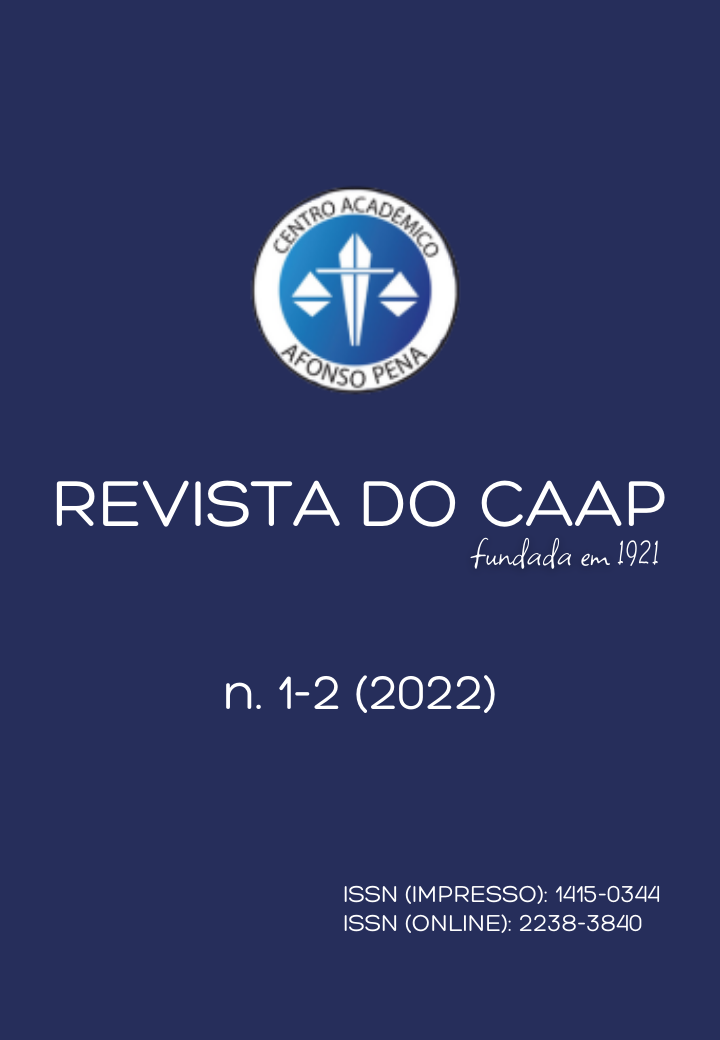On the possibility of decision for socialism in Weimar Constitution
Implications and assumptions of Otto Kirchheimer’s thesis
DOI:
https://doi.org/10.69881/rcaap.v27i1-2.46993Keywords:
Fundamental social rights, Committed Constitution, Otto Kirchheimer, Carl Schmitt, Phenomenological hermeneuticsAbstract
Kirchheimer, within a tradition opened by Carl Schmitt, advocates the thesis according with the absence of a decision for socialism, inWeimar Constitution, would have implicated an undefined space, which would have been therefore occupied by bourgeoise partisans. Behind that thesis lies the unthematized assumption that referred decision would not only be desirable but also possible. Thisarticle proceeds with a reconstruction of the transcendental ground of that possibility, on the hermeneutical horizon, from which critical perspectives about (Social) Welfare State idea of commitment are addressed.It further explores the constitution of that possibility and the way by which, apparently deriving from it, the sovereign decision, on political and constitutional sphere, would impact the hermeneutical activity of Courts. The object of this article comprehends, furthermore, the implications of the positive constitutional field on the courts’ concretization of fundamental social rights and the problem of the assumption, by Schmitt andKirchheimer, of the possibility of a decision like the one referred on the political ground.
Downloads
References
HABERMAS, Jürgen. Teoria do agir comunicativo. V.II. Sobre a crítica da razãofuncionalista. Trad. Flávio Beno Siebeneichler.São Paulo: Editora WMF Martins Fontes, 2012.
HERRERA, Carlos Miguel. Estado, Constituición y derechos sociales. In: Revista Derecho Del Estado, n. 15, 2003. Disponível em: <http://revistas.uexternado.edu.co/index.php/derest/issue/view/85>.
KIRCHHEIMER, Otto. Changes in the structure of political compromisse. Studies in Philosophy and Social Science, v. IX, 1941, p. 264-455. Disponível em https://archive.org/details/ZeitschriftFrSozialforschung9.Jg
KIRCHHEIMER, Otto. Political Justice. The use of Legal Procedure for Political Ends. Westport: Greenwood, 1980.
KIRCHHEIMER, Otto. “Weimar –And What Then?”.In: Politics, Law and Social Change: Selected Essays of Otto Kirchheimer. New York: Columbia University Press, 1969.
MARCUSE, Herbert. The Struggle against Liberalism in the totalitarian view of the State.In:MARCUSE, Herbert. Negations. Essays in Critical Theory. London MayFlyBooks, 2009, p. 1-30. Disponível em mayflybooks.org/wp-content/uploads/2010/07/9781906948054Negations.pdf
NEUMANN, Franz. A mudança de função da lei no direito da sociedade burguesa. Revista Brasileira de Estudos Políticos, v. 109, 2014, p. 13-88. Disponível em http://www.pos.direito.ufmg.br/rbep/index.php/rbep/issue/view/26
NEUMANN, Franz. The Social Significance of the Basic Laws in Weimar Constitution. In: Economy and Society, v. 10, n. 3, 1981.
SÁ, Alexandre Franco de. Poder, Direito e Ordem: ensaios sobre Carl Schmitt. Rio de Janeiro: Via Verita, 2012.
SLOTERDIJK, Peter. Crítica da Razão Cínica. Trad. Marco Casanova et al. São Paulo: Estação Liberdade, 2012.
Downloads
Published
Issue
Section
License
Copyright (c) 2023 Revista do Centro Acadêmico Afonso Pena

This work is licensed under a Creative Commons Attribution 4.0 International License.


